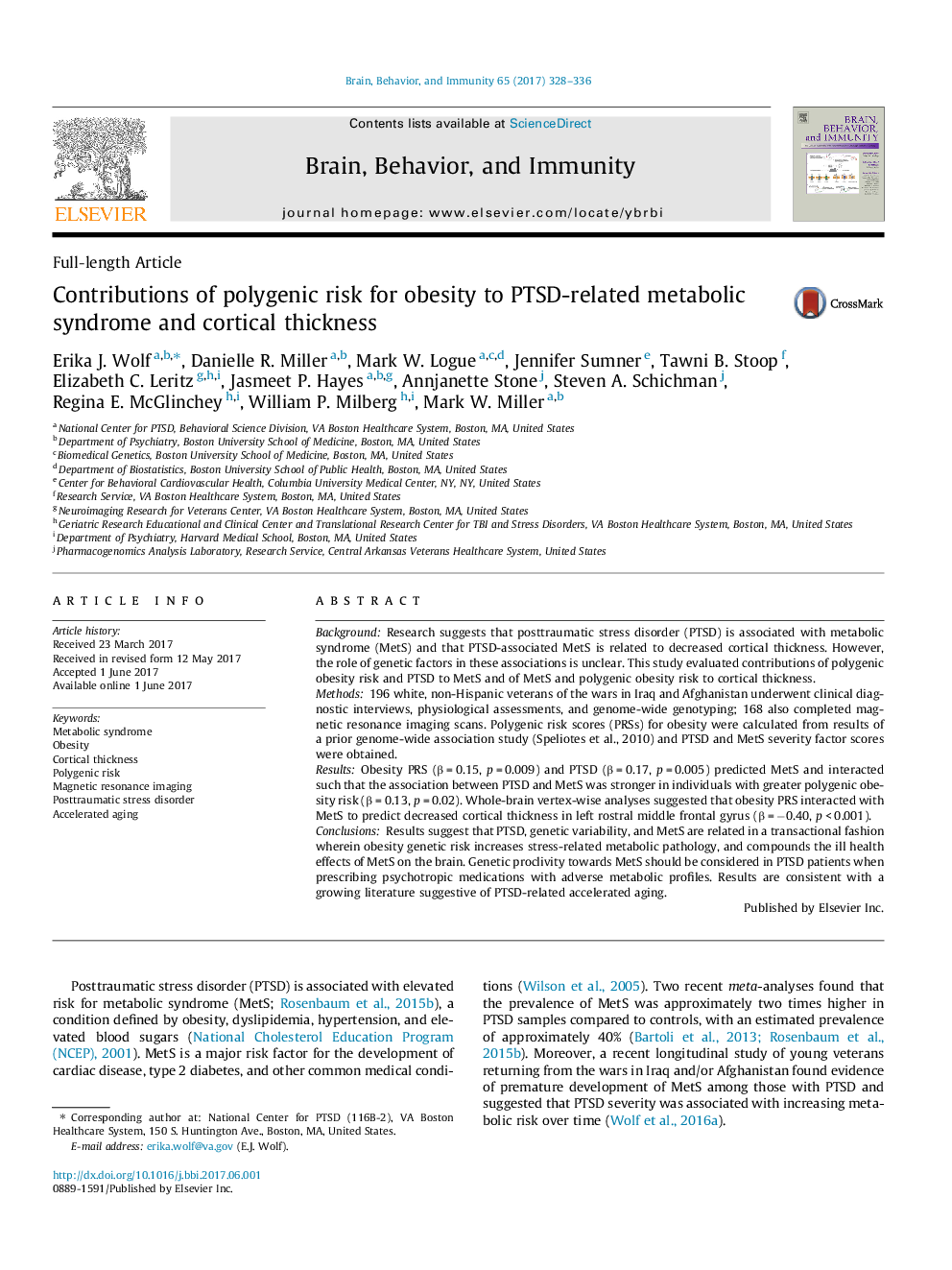| کد مقاله | کد نشریه | سال انتشار | مقاله انگلیسی | نسخه تمام متن |
|---|---|---|---|---|
| 5040605 | 1473902 | 2017 | 9 صفحه PDF | دانلود رایگان |

- PTSD, metabolic syndrome, and cortical thickness are inter-related.
- We evaluated if genetic risk for obesity influenced these relationships.
- In 196 veterans, genetic risk interacted with PTSD to predict metabolic syndrome.
- Genetic risk interacted with metabolic syndrome to predict cortical thickness.
- Results carry clinical implications for optimizing PTSD treatment.
BackgroundResearch suggests that posttraumatic stress disorder (PTSD) is associated with metabolic syndrome (MetS) and that PTSD-associated MetS is related to decreased cortical thickness. However, the role of genetic factors in these associations is unclear. This study evaluated contributions of polygenic obesity risk and PTSD to MetS and of MetS and polygenic obesity risk to cortical thickness.Methods196 white, non-Hispanic veterans of the wars in Iraq and Afghanistan underwent clinical diagnostic interviews, physiological assessments, and genome-wide genotyping; 168 also completed magnetic resonance imaging scans. Polygenic risk scores (PRSs) for obesity were calculated from results of a prior genome-wide association study (Speliotes et al., 2010) and PTSD and MetS severity factor scores were obtained.ResultsObesity PRS (β = 0.15, p = 0.009) and PTSD (β = 0.17, p = 0.005) predicted MetS and interacted such that the association between PTSD and MetS was stronger in individuals with greater polygenic obesity risk (β = 0.13, p = 0.02). Whole-brain vertex-wise analyses suggested that obesity PRS interacted with MetS to predict decreased cortical thickness in left rostral middle frontal gyrus (β = â0.40, p < 0.001).ConclusionsResults suggest that PTSD, genetic variability, and MetS are related in a transactional fashion wherein obesity genetic risk increases stress-related metabolic pathology, and compounds the ill health effects of MetS on the brain. Genetic proclivity towards MetS should be considered in PTSD patients when prescribing psychotropic medications with adverse metabolic profiles. Results are consistent with a growing literature suggestive of PTSD-related accelerated aging.
Journal: Brain, Behavior, and Immunity - Volume 65, October 2017, Pages 328-336